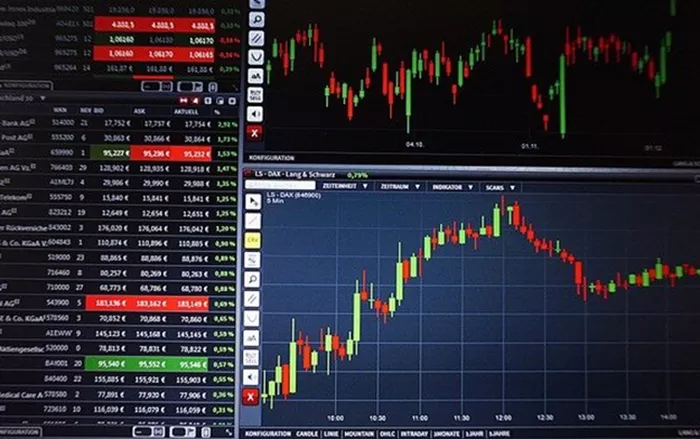On Wednesday, Chinese shares experienced a sharp decline, significantly impacting the Shanghai and Hong Kong markets. This downturn occurred amidst a backdrop of mixed performance in global markets, with many other regions advancing. Investors are reassessing their expectations following the release of economic stimulus plans that have failed to meet prior optimism.
Chinese Market Performance
The Shanghai Composite index fell 6.6% to 3,258.86 after a robust 4.6% gain on Tuesday, which marked its reopening after a weeklong national holiday. The CSI 300 Index, tracking the top 300 stocks traded in the Shanghai and Shenzhen markets, lost 7.1%. Additionally, Shenzhen’s benchmark dropped 8.7%, while Hong Kong’s Hang Seng index slid 1.5% to 20,618.79, following a staggering plunge of over 9% the previous day.
Mixed Reactions in Global Markets
In contrast to the significant declines in China, global markets exhibited a more positive trend. European stocks opened flat, with France’s CAC 40 rising 0.2% to 7,538.08 and Germany’s DAX showing little change at 19,070.69. Britain’s FTSE 100 climbed 0.5% to 8,227.54. In the U.S., futures for the S&P 500 and Dow Jones Industrial Average were down 0.3% and 0.2%, respectively, indicating a cautious outlook.
Disappointing Economic Stimulus Plans
Market sentiment has been affected by the recent details surrounding economic stimulus plans announced by Chinese officials in Beijing. Initial expectations were high after the central bank and government agencies unveiled various policies aimed at reviving the struggling property market and boosting economic growth. However, these measures have not delivered the anticipated impact, leading to revised economic forecasts.
Analysts’ Insights on Government Actions
The Chinese government has set a target for approximately 5% annual growth this year, but the economy expanded at only a 4.7% rate in the last quarter, prompting economists to lower their estimates for the remainder of the year. Analysts have pointed out that the recent news conference by China’s National Development and Reform Commission did not provide substantial information regarding government spending, which is managed by the Finance Ministry. A briefing from this ministry on Saturday is expected to shed light on planned government expenditures, which so far have not met investor expectations.
Market Reaction and Future Prospects
“A lack of new stimulus has been the cause of disappointment,” commented Yeap Jun Rong from IG. “Many market participants were hoping for fiscal policies that would mirror the financial ‘bazooka’ delivered in late September, but the recent announcements indicate a step down.” Despite the recent downturn, the Shanghai Composite remains up 5.2% from a year ago and over 10% in the last three months, while Hong Kong’s index has risen nearly 18% over the same period.
International Markets Show Resilience
In Japan, the Nikkei 225 index rose 0.9% to 39,277.96, supported by an increase in shares of the retailer Seven & i Holdings, following reports of a heightened takeover bid by Canadian firm Alimentation Couche-Tard. Meanwhile, Australia’s S&P/ASX 200 gained 0.1% to 8,187.40. South Korea’s markets were closed for a public holiday.
U.S. Markets Experience Gains
On Tuesday, U.S. markets showed positive performance, with the S&P 500 gaining 1%, the Dow up 0.3%, and the Nasdaq composite adding 1.4%. In bond markets, the 10-year Treasury yield decreased slightly to 4.02%, while the two-year yield dropped to 3.96%, although it remains near its highest level since August.
Rising Oil Prices Amid Geopolitical Tensions
Oil prices continued to rise, driven by escalating tensions in the Middle East, particularly following Hezbollah’s recent rocket attacks into Israel. Benchmark U.S. crude oil prices rose by 25 cents to $73.82 per barrel, while Brent crude, the international standard, climbed 32 cents to $77.50 per barrel.
Currency Trading Movements
In currency trading, the U.S. dollar increased to 148.56 Japanese yen from 148.20 yen. Conversely, the euro fell slightly from $1.0961 to $1.0970, reflecting mixed investor sentiment in global markets.
Conclusion
The sharp decline in Chinese shares on Wednesday has underscored the challenges facing the country’s economy, particularly as expectations surrounding stimulus measures fall short. While global markets showed resilience amid these developments, the outlook remains uncertain as investors await further guidance from government briefings and monitor geopolitical tensions that could influence market dynamics.
Related Topics:

